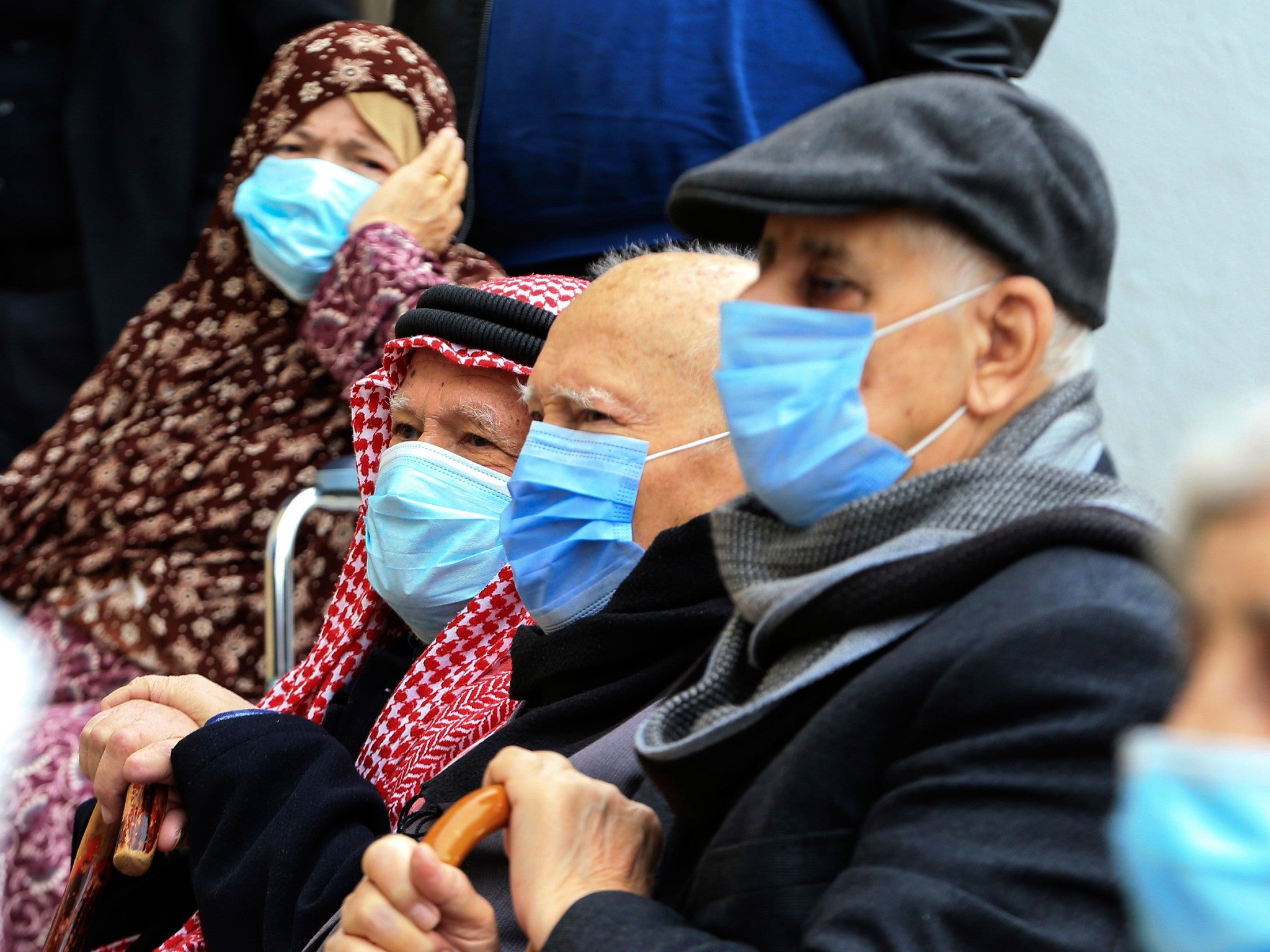Vaccinating refugees and the stateless is an important part of the fight against Covid-19
Countries across the world – especially the wealthier ones – should swiftly follow the positive example set by Jordan, writes Bel Trew


The desperate hunt for the vaccine has begun. I know people who are planning “vaccine holidays” where they’ll fly halfway across the world and pay a premium to get one early.
Others have agreed to be vaccinated if they do vaccine promotion for particular countries that need good PR. Some have realised if you loiter around some vaccine centres, there is a chance of getting a shot at the end of the day when the surplus of “defrosted” jabs has to be administered immediately or thrown away.
And so the vaccine discrepancy has also begun. Governments have made it clear they need to prioritise their own citizens first, which is understandable, but that is a problem for those who have no state to protect them, or those who have no state at all.
This week Jordan set an example for the world by becoming one of the first countries to vaccinate refugees within its borders. The small, and not particularly rich, country is host to some 750,000 refugees registered with the UN’s refugee agency (UNHCR) and a further 2.3m Palestinian refugees that are looked after by the United Nations Relief and Works Agency for Palestine Refugees in the Near East (UNRWA).
Despite the immense pressures it faces, it decided that as part of its national Covid-19 vaccination plan, anyone living on Jordanian soil, including refugees and asylum seekers, is entitled to receive the vaccine free of charge.
And so a woman called Raia and her husband Ziad, who both fled the Iraq conflict to Jordan in 2006, received the coronavirus jab on Thursday after being prioritised due to Ziad’s chronic diseases – which placed him in the high-risk category.
“When I go home, I can kiss my children without having to sanitise myself first,” Raia said with relief, giving a thumbs up when she came out of the health centre. “We just want life to be back to normal. The vaccine is the right way of doing this.”
Countries across the world, especially the wealthier ones, should swiftly follow Jordan’s example by including refugees, displaced people and stateless persons in their national health response and also by supporting host countries that may not have the capacity to help the displaced living within its borders.
We should do this not just because it a moral responsibility but, as UN officials told me, because in a pandemic no one is safe until everyone is safe.
There is no way to fight this deadly virus well enough, unless enough of the world is vaccinated. It is impossible to break or sustainably slow the transmission of the virus unless a minimum of 70 per cent of the population has acquired immunity.
“Jordan has set a great example, and other countries need to follow suit,” a UNHCR spokesperson told me. “But they also need to be supported so they can do so and to fulfil the urgent need not to leave anyone behind.”
The scale of the problem is huge. The UNHCR told me it is working to ensure that some 80 million forcibly displaced people in more than 100 countries are included in rollouts of Covid-19 vaccines and treatments – among them some 29.6 million refugees.
It’s tough. More than 85 per cent of refugees live in developing countries, which will struggle to find ways to pay for jabs for their own citizens let alone refugees. Even if the jabs are purchased, logistics are a nightmare: one of the approved vaccines right now requires ultra-cold storage up to the last mile, so it’s not possible to deploy a decentralised vaccine approach like other jabs.
The main mechanism to work on this issue is the World Health Organisation-led COVAX programme that aims to combat “vaccine nationalism” by ensuring rapid and equitable access to Covid-19 vaccines for all countries. Last month, the WHO said COVAX needed to raise an additional $6.8bn (£5bn) this year to be able to secure enough vaccines to do that.
And so COVAX may not be enough to ensure everyone is protected, which is why agencies such as UNHCR are calling on all countries to step up.
To date, out of 90 countries currently developing national Covid-19 vaccination strategies, the UNHCR says only around a half have included refugees in their vaccination plans.
In the UK, anyone with access to the NHS – including asylum seekers and refugees – should be part of the government’s rollout of vaccinations, which is already under way. Last year Britain gave $26.5m to UNHCR’s emergency appeal, which is a good start.
The UNHCR hopes all countries will do the same – and donate more. Aside from financial packages, there are also calls for wealthier countries to donate a percentage of the vaccines they have secured to build an emergency vaccine stockpile.
In this bleak time for the world, never before has John Donne’s line “no man is an island” been so true.
And in fact, the end of that poem should act as a warning of the consequences if we choose to ignore that: “Never send to know for whom the bell tolls,” Donne warned. “It tolls for thee.”
In this pandemic, our fates are inextricably connected: one individual can only be protected if all are protected.
Join our commenting forum
Join thought-provoking conversations, follow other Independent readers and see their replies
Comments
Bookmark popover
Removed from bookmarks